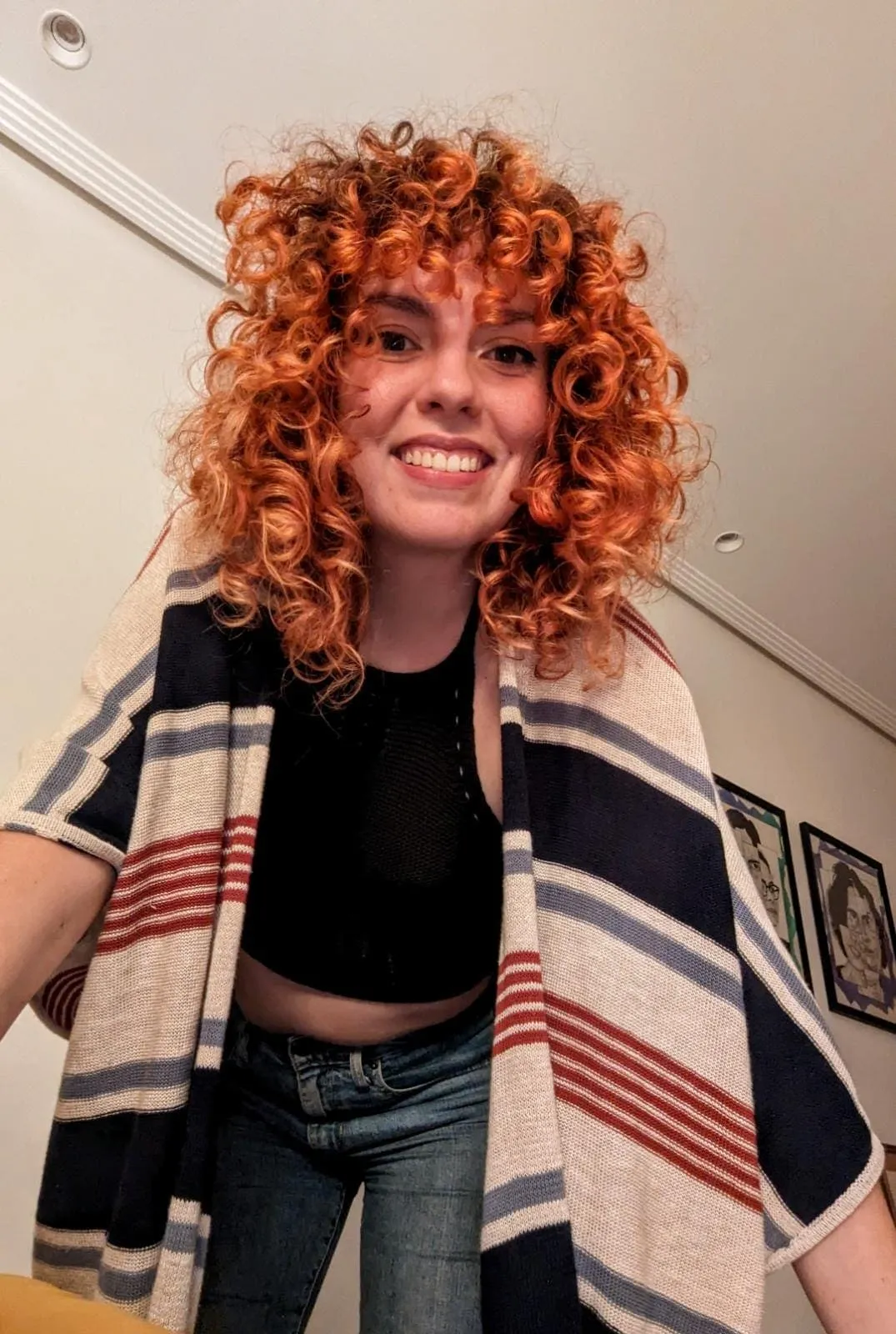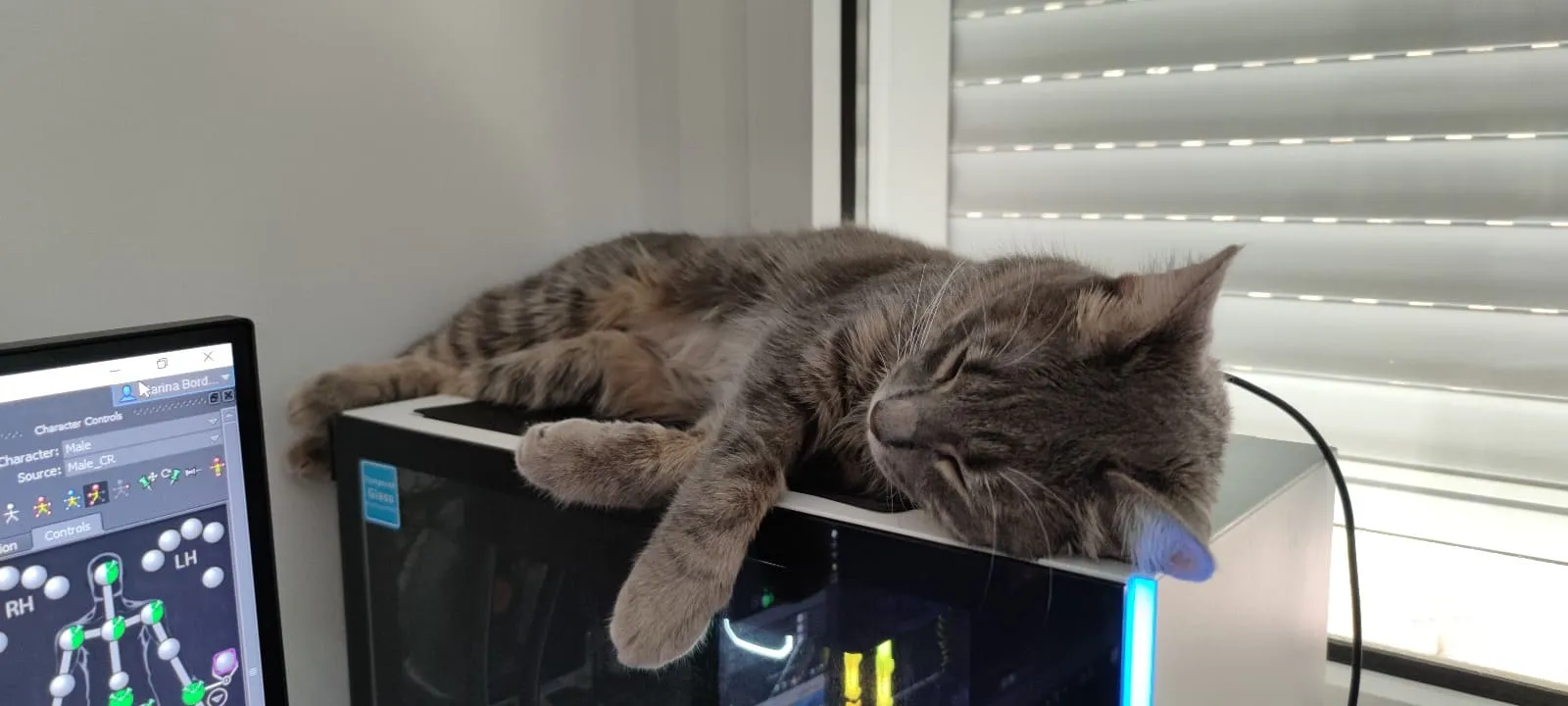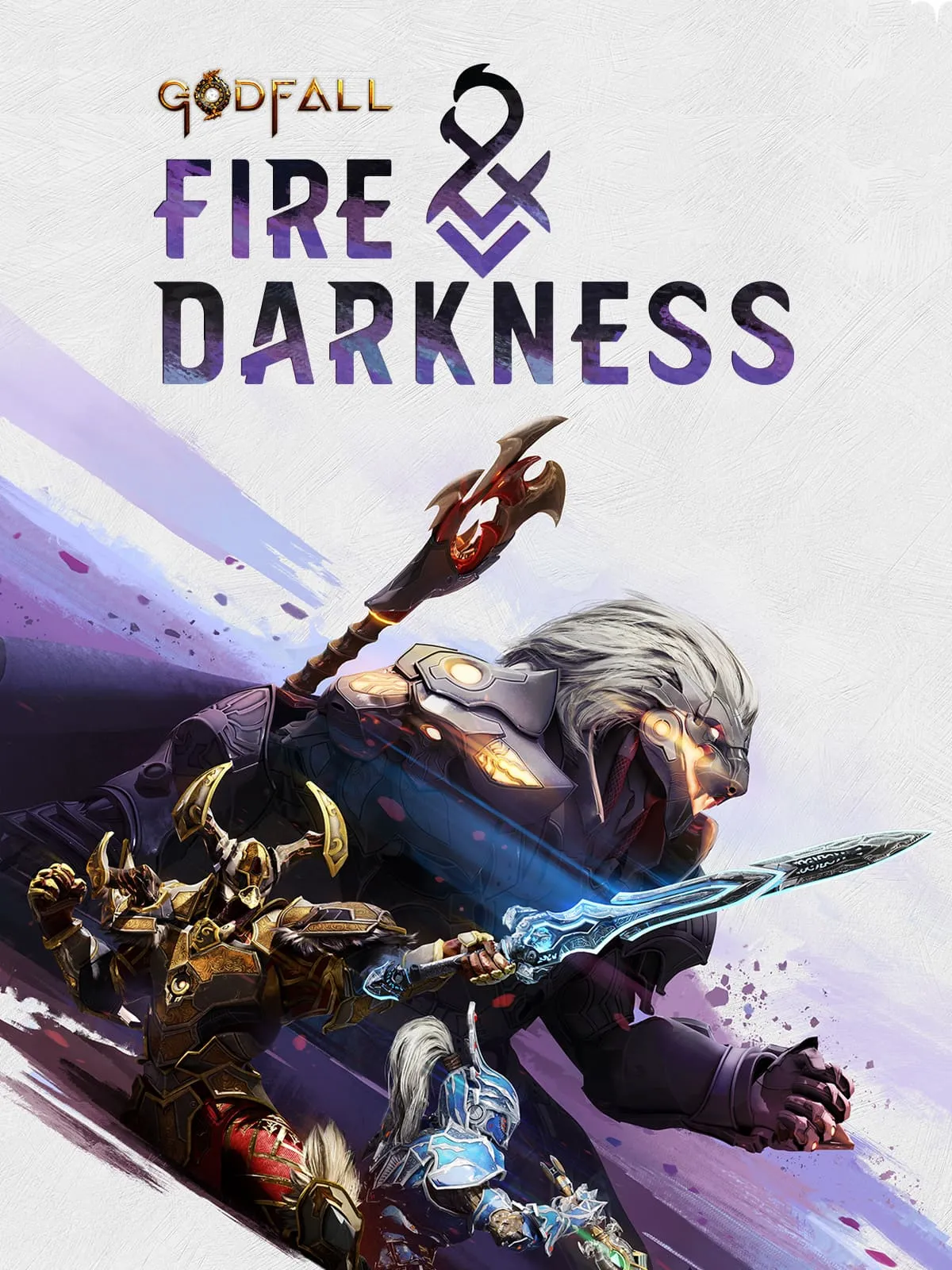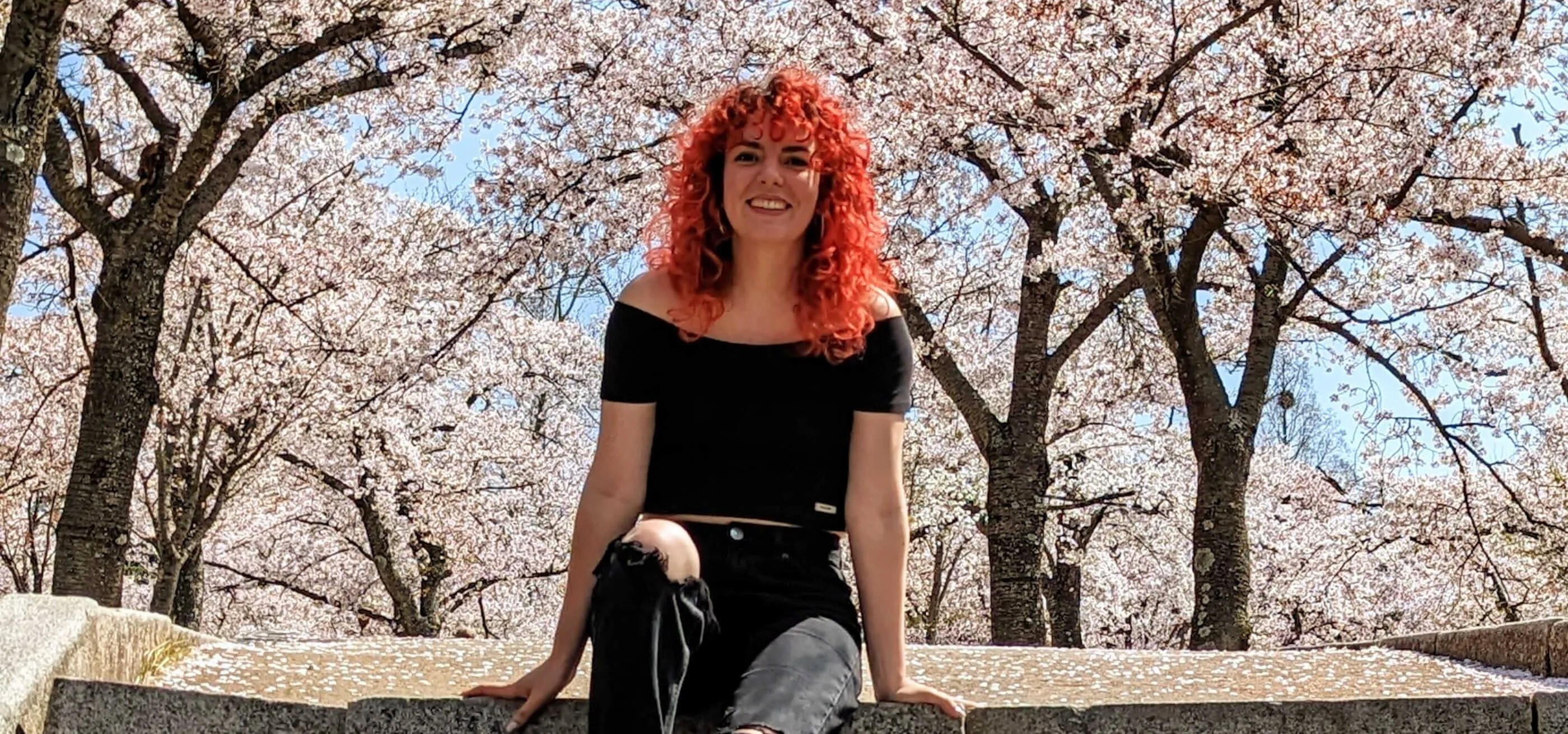 As an artist, Marina Bordona Alonso sees work as both a canvas for professional growth and a driver of interpersonal bonds. But it’s not just the work, it’s also the people that comprise these jobs that shape our identities, nurture our essence, and leave a lasting impression. Through our endeavors, we not only persevere but prosper, enriching our character while forging connections that fortify our career and personal landscapes.
As an artist, Marina Bordona Alonso sees work as both a canvas for professional growth and a driver of interpersonal bonds. But it’s not just the work, it’s also the people that comprise these jobs that shape our identities, nurture our essence, and leave a lasting impression. Through our endeavors, we not only persevere but prosper, enriching our character while forging connections that fortify our career and personal landscapes.
In this tech-driven era, diverse work models — onsite, remote, and hybrid — have reshaped how we choose our collaborators. Marina, a seasoned gameplay animator with an extensive track record in the triple-A game industry, has traversed these diverse work environments over the years while working on titles such as Assassin’s Creed Valhalla and Godfall. Her invaluable experiences, especially pertinent for the emerging generation of graduates, stand ready to be shared. This is her journey.
Onsite Work
Marina earned her Bachelor of Fine Arts in Digital Art and Animation from DigiPen Institute of Technology Europe-Bilbao. Her talent caught the eye of Ubisoft Barcelona, where she began her career just weeks after graduating. The transition from Bilbao to Barcelona marked a significant life change — a new city and her first job made for a pivotal moment.
“At Ubisoft, I took my first steps in the industry as a junior gameplay animator, working primarily on character animations, integrating them into the game and collaborating with various departments. I had the responsibility of creating key animations for several boss characters and synchronized animations between player and enemies. Honestly it was an amazing opportunity and great show of trust towards a Junior from my superiors.”
When starting your first job, you not only learn the technical aspects of animation but also gain your first insights into the industry. This knowledge comes from the people around you, which is why I found the office environment so crucial. Taking breaks, sharing experiences, and building bonds with colleagues was essential, or at least one of the most enjoyable parts of on-sight work and fundamental for any person starting off.
People, or rather the bonds between people, are what truly shape games. The more comfortable an employee is, the better the final product. It’s not just about management but also about the comfort of building something together. Those connections go beyond just the projects; they can also play a role in your professional path and your personal wellbeing. Plus, this industry isn’t that big. It’s always the same people rotating between the same companies, making good impressions and showing people you are trustworthy just means they’ll be happier to recommend you in the future or have you back in any company if the experience was satisfactory.”
Remote Work
Amidst the pandemic, Marina had already transitioned to remote work. In her pursuit of professional growth and new challenges, she joined the Counterplay Games team, known for their acclaimed project, Godfall. Her role as a gameplay animator included wide range of responsibilities, including cinematics.
“Embracing remote work expanded my horizons to opportunities I hadn’t considered before. I really like Barcelona and wanted to stay. It isn’t as good as Bilbao — which is my favorite city in the world — but it offers a vibrant nightlife, plenty of activities, both beaches and mountain, and, most importantly, the relationships I had cultivated over the years. I was no longer constrained by geographical limitations when choosing prospective employers.

It’s been a bit of a different ride. After having worked remotely for a while, I’ve realized it might not be my thing, at least not right now. It’s tricky for companies to build a tight-knit team when you’re never really in the same place. It can become very isolating, especially if you are dealing with big time differences with the rest of your colleagues, as was my case. This can affect work projects, and while good management helps, it’s even more complicated on a personal level. I think remote companies have their own unique issues that need specific solutions and we’re still figuring them out. As a general rule and personal tip, I’d recommend always turning on your webcam during meetings, don’t underestimate the effect of talking to someone ‘face to face’ and not only to a random static avatar.
There are some good aspects, like learning to handle various scales of work, getting better at long-distance communication, becoming more self-reliant, and nailing time management. So, yeah, it’s definitely worth giving it a shot to see if it’s your thing, just be conscious about what you are giving up on, as well.
As artists we can be very passionate and personally, I’m all about soaking up knowledge from the people around me. Their energy fuels me, and it reflects on my work. But as I didn’t have much contact throughout the day with my team and taking into consideration that I live alone with just my two cats; things took a bit of a nosedive. My work habits got wonky, and I lost motivation, not so much on the professional side but more on a personal one and that ended up reflecting badly on my mental health and overall mood. Don’t get me wrong, I’m proud of what I created during that time, and I appreciate the lessons and growth that remote work has offered me, but I had to admit that I missed the office and human interaction.”
Hybrid Work
Marina has recently embarked on a new adventure sailing with IO Interactive, the developers of the Hitman series. Hybrid models are present throughout the company landscape and are part of their culture.
“Definitely my ideal work environment. It has both the perks of the remote work and the in-office spaces. I’m happy about how IO embraces this work culture. I joined pretty recently, and I’ve already been brought out to Copenhagen and Malmö to meet the rest of the team in person. This makes it so much easier to work with someone remotely as I already have a personal connection with them. Also, it just makes me feel immediately included and part of the team, which just boosts my moral, motivation, and enthusiasm.
 Hybrid work models are a model of trust. They provide you with the framework in which you can do your work, and develop your career, while giving you more flexibility to manage your schedule to suit your personal life as well. For me this just makes sense, as we are people, not machines, and companies need to understand, respect, and embrace that.
Hybrid work models are a model of trust. They provide you with the framework in which you can do your work, and develop your career, while giving you more flexibility to manage your schedule to suit your personal life as well. For me this just makes sense, as we are people, not machines, and companies need to understand, respect, and embrace that.
For now I’m incredibly comfortable and happy at IO, so my idea is to stay put and get the most out of this experience. Long-long-long term I’d like to return to Bilbao, but in the meantime, I want to keep exploring Barcelona. I already settled down here and don’t see myself moving anytime soon. I really like Spain; it’s my culture and I thrive in it. I don’t think I could live in any other place, or at least I’d just rather not for now. And I still get plenty of opportunities to visit Bilbao and the people I know there, which of course includes DigiPen Europe-Bilbao whenever I get a chance.
I get really excited about animating elaborate, broad, creative movement. Fantasy has always been my favorite genre; shooters and those kinds of games don’t really do it for me. But working on huge, imaginative projects? That’s where my creativity and motivation shines. Whether it’s choreographing epic battles or bringing creatures to life, as a gameplay animator it’s just more fun!”
Marina’s journey through the diverse work landscapes reveals a profound synergy of experience and human connection. From DigiPen’s early days to navigating onsite, remote, and hybrid work, her insights offer guidance for newcomers and seasoned professionals, emphasizing that work’s essence lies in nurtured connections and infused passion.
Ask and Chat
How was your DigiPen experience?
“DigiPen sure had its tough moments, especially in those early years. I was fully committed, dedicating loads of time and energy. But as time passed, I learned to strike a better balance and explore different interests. When I think about it, what I truly cherish are the friendships I made along the way.”
What would you highlight from your time at DigiPen?
“Figuring out how to work as a team was a real eye-opener. You get a lot of independence and freedom, like creating a game or short film from scratch with your own ideas or putting together presentations and organizing events after. It’s all about being resourceful. I also learned to trust my teammates and let them take the reins sometimes. It’s about realizing that you’ve got people you can rely on.”
Is there a particular class or project you’d like to spotlight?
“Those animation classes with Javi, especially during the first year, were defining for me. We got introduced to the world of animation with 2D animation, and even though I didn’t choose 2D as a career path, the classes really had an impact on me and helped me realize animation was my passion. Also, model drawing and life drawing left a lasting impression on me. Not only did I learn a lot, but I also genuinely found them incredibly fun.”
Highlight of Projects done at DigiPen:
